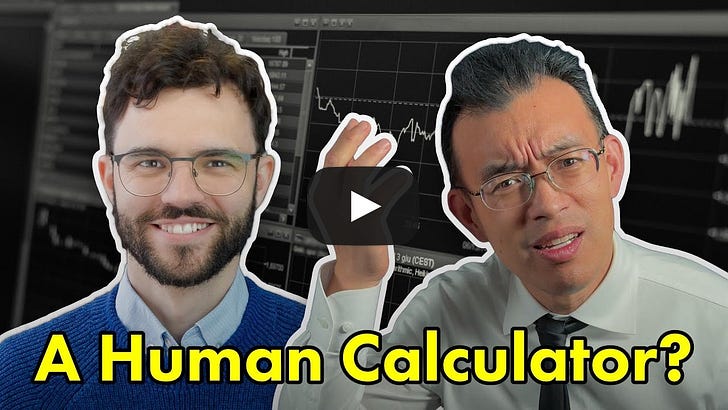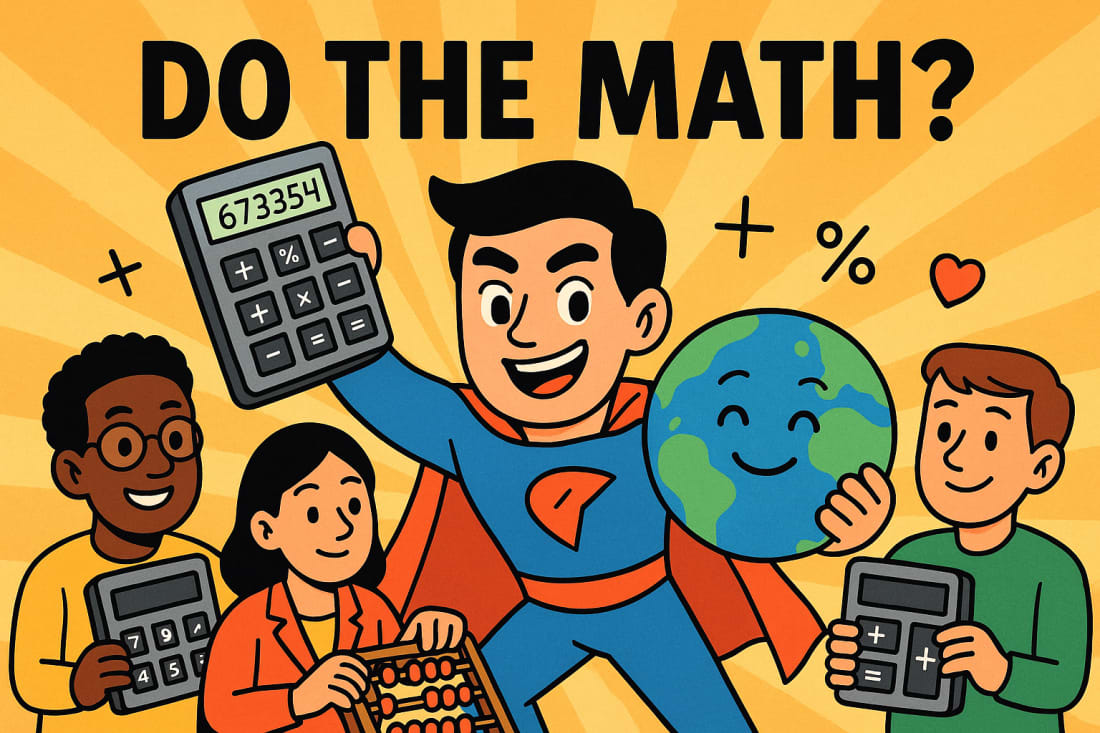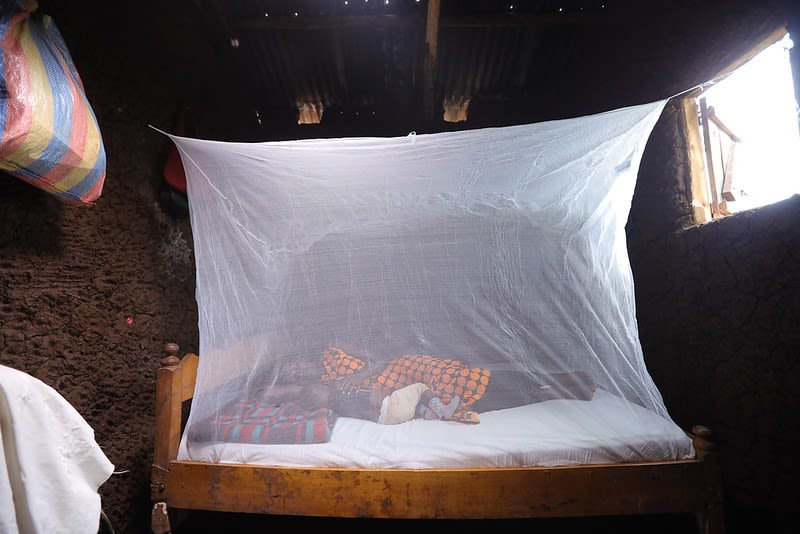|
Are Human Calculators the Key to Saving the World? (with Joey Savoie)
Optimization isn't as hard as you think. Plus, a conversation with Peter Singer and Kasia de Lazari-Radek.
Quick! What’s 678 times 215?
If you are like me, and most other human beings on Earth, you can’t offer a correct answer without a lot of effort. But when my mom was growing up in Taiwan, there would be at least a few students in every class who could do the math instantly and effortlessly.
“We didn’t think much of it,” she explained. “Anyone can do it with training.”
I didn’t believe her. I was good at math as a kid. Yet I could not even imagine doing 3-digit multiplication instantly in my head. And yet when I asked others from Taiwan, they told me the same thing: human calculators were everywhere and easily trained. And it turns out they are right. Evidence shows that humans can develop near-magical computational abilities. (You can read how this is done here.)
I thought about these human calculators after a recent podcast conversation I had with Joey Savoie, the founder of an organization called Ambitious Impact (AIM) in London. AIM is an incubator for nonprofit entrepreneurs. It’s been described by historian and writer Rutger Bregman as Hogwarts for Do-Gooders (after the fictional wizardry school from the Harry Potter series).
Check out my conversation with Joey on YouTube or on your favorite podcast app.

And for good reason. AIM founders are able to achieve things far beyond what most of us think is possible. Take the Lead Exposure Elimination Project (LEEP). With AIM support, LEEP has already saved many thousands of lives by combating lead poisoning – and is on the path to possibly saving millions more. And LEEP is just one of dozens of charities that Joey and his team have turned into forces for good for human beings and animals. Most of us can’t imagine saving one life. AIM charities aim to save billions. Reading through their accomplishments feels like magic at work.
But it’s not magic. At root, it’s a simple approach: do the math. Take LEEP. AIM and LEEP calculated that one in three children worldwide were suffering from dangerous levels of lead exposure and that 52% of all countries had no regulations on the use of lead in paint. Making change in those countries, in turn, could be as simple as doing a $300 test for lead in paint. AIM and LEEP did the math and realized that, on a relatively small budget, they could save millions of kids. It’s an approach similar to the one used by the human calculators who can do seemingly impossible math problems. Break a hard problem into smaller and easy-to-calculate chunks.
And here’s the key bit: all of us have that same ability. We just have to do the math. It might mean something small, like looking around to see if there’s a cheaper way to buy a cup of coffee. We can use our savings to send a dollar a day to kids in Africa who will die if they don’t get malaria nets. It might be something bigger, like going to a website like this to calculate what we should do with the 80,000 hours we’ll spend at work over our lives. Even a little bit of moral math can turn each of us into one of the planet’s most powerful forces for good.
Of course, not all of us will take this as far as Joey or the folks at AIM. And Joey’s life is a little wild. He estimates the time efficiency of flossing versus brushing. (Flossing just isn’t worth it compared to spending more time brushing.) He has a search algorithm for dating. (It’s worked, as his partner is a remarkable person and match.) That’s probably too much for most people.
And there are weaknesses to turning everything into math. Among other things, it can remove the emotion that fuels our relationships and purpose.
But that doesn’t undermine the key point. Even a little bit of moral math can lead us to much larger impacts.
Give the conversation a listen, and let me know what you think!
What’s up this week?
I had a great conversation with Peter Singer and Kasia de Lazari-Radek about disruption, open rescue, and the personal growth triggered by great moral challenges. Peter and Kasia are world-class philosophers. So, perhaps surprisingly, the thing I enjoyed most about the conversation was that it was just really damn fun. We went down a winding path from optimal workouts (physical or moral) to the ethical implications of having children, and there were lots of laughs. Check it out on Apple Podcasts or Spotify.
As I mentioned in the last newsletter, I’m leaving SF for seminary — but I’ll be back for one weekend in August and would love to hang out! I will miss the city greatly, and it’s possible I’ll be back. The innovation and ambition of the city are unmatched. But the offer I’ve received to attend seminary is too good to turn down, especially given my newfound appreciation for the importance of institutional scaffolding.
By the way, if you’re in New York City, and motivated by some of the organizing ideas I’ve been writing about recently, reach out. I’m looking for folks who are smart, motivated, and ambitious to work on new models of social change.
Don’t forget that this blog is going to have a lot more content that doesn’t go out to the mailing list! I’m aiming to turn this into a daily blog. That’s way too many emails to go out, of course, so swing by the page on a regular basis. And leave a comment!
Thank you for reading The Simple Heart! To help us reach more people, become a donor today.

